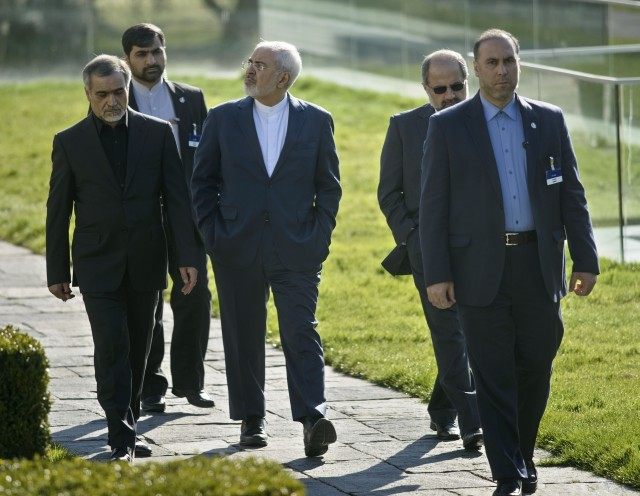Iranian negotiators in Lausanne, Switzerland have pulled what observers are calling a “bait-and-switch” by reneging on an earlier agreement to export their country’s existing stockpile of highly enriched uranium. The New York Times calls the shift a “surprise” move on a “critical element” of the nuclear deal, but adds that “the Obama administration is expected to argue that it would not constitute a serious risk” to the deal if the stockpile is inspected by international monitors.
That observation confirms what an Iranian journalist who defected to the West during the talks has warned, namely: “The US negotiating team are mainly there to speak on Iran’s behalf with other members of the 5+1 countries and convince them of a deal.” The Obama administration is said to be so concerned to achieve a deal at almost any price that it will defend the Iranian regime’s last-minute brinkmanship, even though it concerns the most dangerous nuclear material Iran possesses.
Under the terms of the interim deal, Iran was to oxidize its existing stockpile of highly-enriched uranium–a process that is thought to be reversible in 1-2 weeks, and which the Obama administration misleadingly described to the public as having “eliminated” the stockpile. The fact that Iran now refuses to export the uranium stockpile means that, if the rest of the world agrees, the regime could maintain reserves of nuclear material that are only a short path away from weaponization.
As the Star Wars cliché goes: “This deal is getting worse all the time.” News agencies reported Sunday that diplomats from the P5+1 countries (the five permanent members of the UN Security Council, plus Germany) had reached the provisional framework of a deal with Iran. However, Iran said that the reports were the West’s attempt to pressure it to sign a deal–and it appears to be turning the tables, using the pressure of an impending deal to make demands once thought impossible.

COMMENTS
Please let us know if you're having issues with commenting.